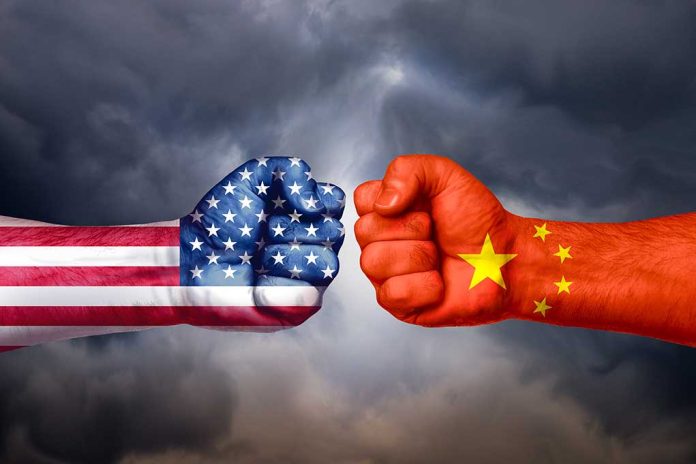
China has criticized President Joe Biden’s decision to authorize $567 million in military aid to Taiwan, adding tension to their already strained relationship.
At a Glance
- Biden has allocated $567 million in military aid to Taiwan, sparking strong condemnation from China.
- China claims this move violates the one-China principle and threatens cross-strait stability.
- The aid package includes defense items, services, and military training for Taiwan.
- China asserts that Taiwan independence is a “dead end” and such U.S. support will backfire.
Biden Approves Military Aid Package for Taiwan
President Joe Biden’s decision to provide $567 million in military equipment to Taiwan has drawn sharp criticism from China. The aid package, authorized under Biden’s presidential drawdown authority (PDA), includes defense items, services, and military training for Taiwan. This authority allows the U.S. to transfer such resources from its stocks to another country for urgent defense needs.
This move comes as part of the ongoing U.S. commitment to support Taiwan amid rising Chinese military activity around the island. Despite historical U.S. acknowledgment of China’s claim over Taiwan, the Taiwan Relations Act of 1979 mandates that the U.S. provide Taiwan with sufficient weaponry for self-defense.
China’s Strong Response
Reacting to the U.S. decision, Chinese Foreign Ministry spokesperson Lin Jian stated that Taiwan independence is a “dead end” and U.S. support for Taiwan will only backfire. Lin emphasized that this move seriously violates the one-China principle and the three China-U.S. Joint Communiques, which have historically governed relations between the two countries regarding Taiwan.
Ongoing Tensions Over Taiwan
China, which considers Taiwan a part of its territory, has increased its military presence around the island as a means to pressure Taiwan’s Democratic Progressive Party (DPP). The U.S., meanwhile, continues to recognize but not necessarily support China’s claim over Taiwan, maintaining a strategic ambiguity that has defined U.S.-China relations for decades.
Additionally, the U.S. has implemented export controls to prevent advanced technologies from being used by China for military purposes. In response, China has criticized these measures and instituted its own export controls on drones, calling the U.S. actions discriminatory and protectionist.
Implications for U.S.-China Relations
This situation underscores the complex and fraught nature of U.S.-China relations. High-level meetings between both countries continue to address various issues, including trade, climate change, and financial stability, but significant challenges remain. The Biden administration has continued to implement measures against China’s trade practices and export policies, further heightening tensions.
As both countries grapple with these geopolitical tensions, the focus remains on maintaining stability and avoiding further escalation. The world watches closely as the U.S. and China navigate their differences over Taiwan and other critical issues.

















